The Best Hotel Reservation System: Key Features and Benefits Explained
 Mika Takahashi
Mika Takahashi Mika Takahashi
Mika TakahashiThe hospitality world has seen a massive shift towards digital, with more than 70% of hotel bookings happening online nowadays. At the center of this change is the hotel reservation system—a smart technology platform that’s become absolutely vital for running a hotel smoothly today.
Whether you're running a cozy boutique hotel or managing a sprawling hotel chain, knowing how hotel reservation systems work can be the key to staying ahead in this competitive market. This all-in-one guide will take you through everything you need to understand about hotel reservation systems, from the basics to advanced strategies for making the most of them.
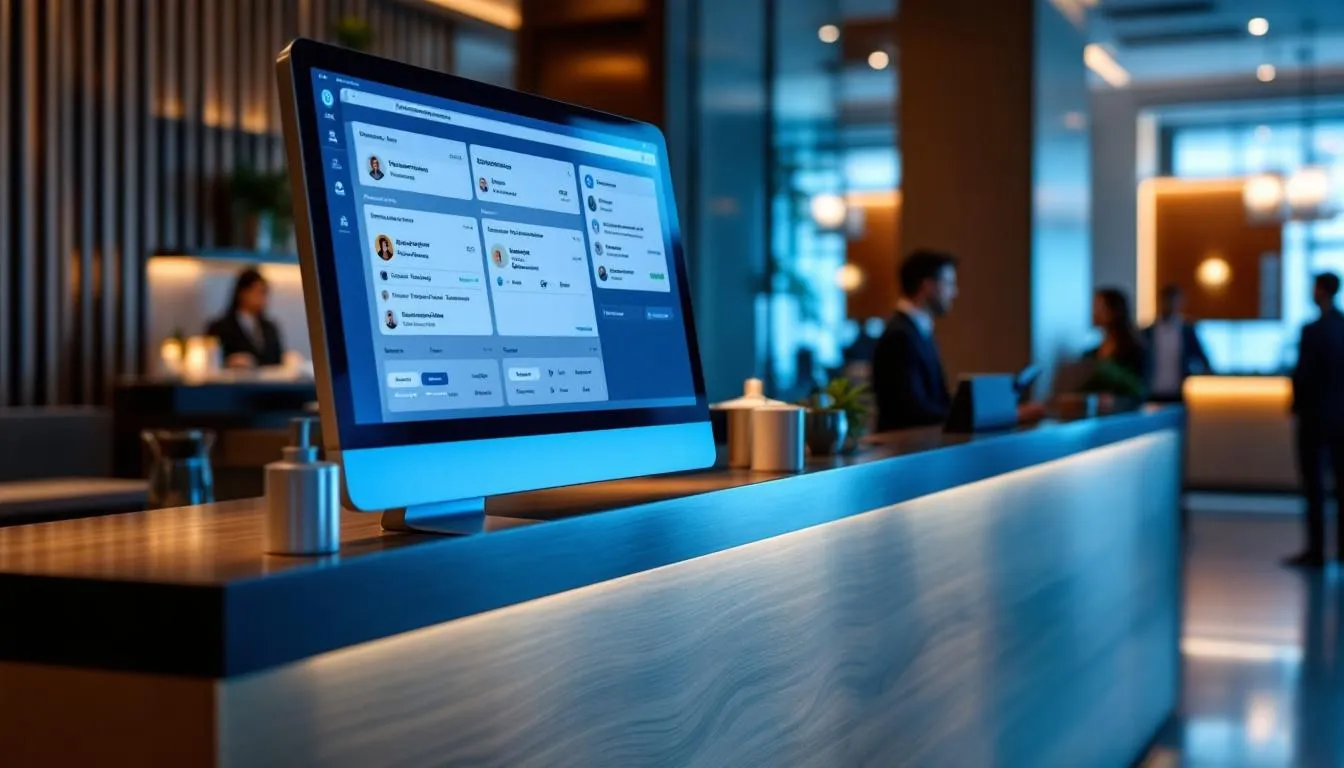
At its core, a hotel reservation system is a digital tool that helps hotels manage everything from room bookings and rates to availability and guest details—all in one convenient place. This kind of software is the backbone of today’s hotel operations, helping properties handle the complexities of booking across multiple channels.
But it’s much more than just a booking manager, it's a hotel reservation software. A comprehensive hotel reservation system acts as the central hub linking your property management system (PMS), booking engine, channel manager, and payment platforms. Thanks to this integration, all parts of your hotel’s tech setup work together smoothly, sharing information automatically.
One of the most important features is real-time synchronization. This means your inventory and rates update instantly across all booking channels—whether that’s OTAs, global distribution systems (GDS), or direct bookings on your website. So when a guest books a room anywhere, availability adjusts everywhere at once, helping you avoid the headache of double bookings.
The best hotel reservation software also connects effortlessly with your existing hotel tools, cutting down on manual work. This way, guest info, room status, prices, and availability stay perfectly in sync across your entire operation.
Knowing how hotel reservation systems work is key to getting the most out of them. It all starts when guests begin their booking journey by choosing check-in and check-out dates through your online booking engine or other connected platforms.
The booking process flows smoothly and automatically: guests pick their dates, see up-to-the-minute availability, select room types, and pay securely—all through an interface designed to make booking easy and boost conversion rates. Along the way, the system collects important guest details and preferences.
When a booking request comes in, the system instantly checks availability against your current inventory in the property management system and shows accurate pricing based on dynamic rate rules. This real-time validation ensures guests only see rooms that are truly available at current market prices.
Once a booking is confirmed, the magic of automation kicks in. The PMS updates immediately, inventory adjusts across all channels, and confirmation emails get sent out to guests. This cuts down on hours of manual work and drastically reduces human errors.
Thanks to channel synchronization, your entire distribution network stays in harmony. Two-way data exchange means booking info flows smoothly between your reservation system, channel manager, and all your partners. Any rate or inventory updates get communicated instantly across all platforms.
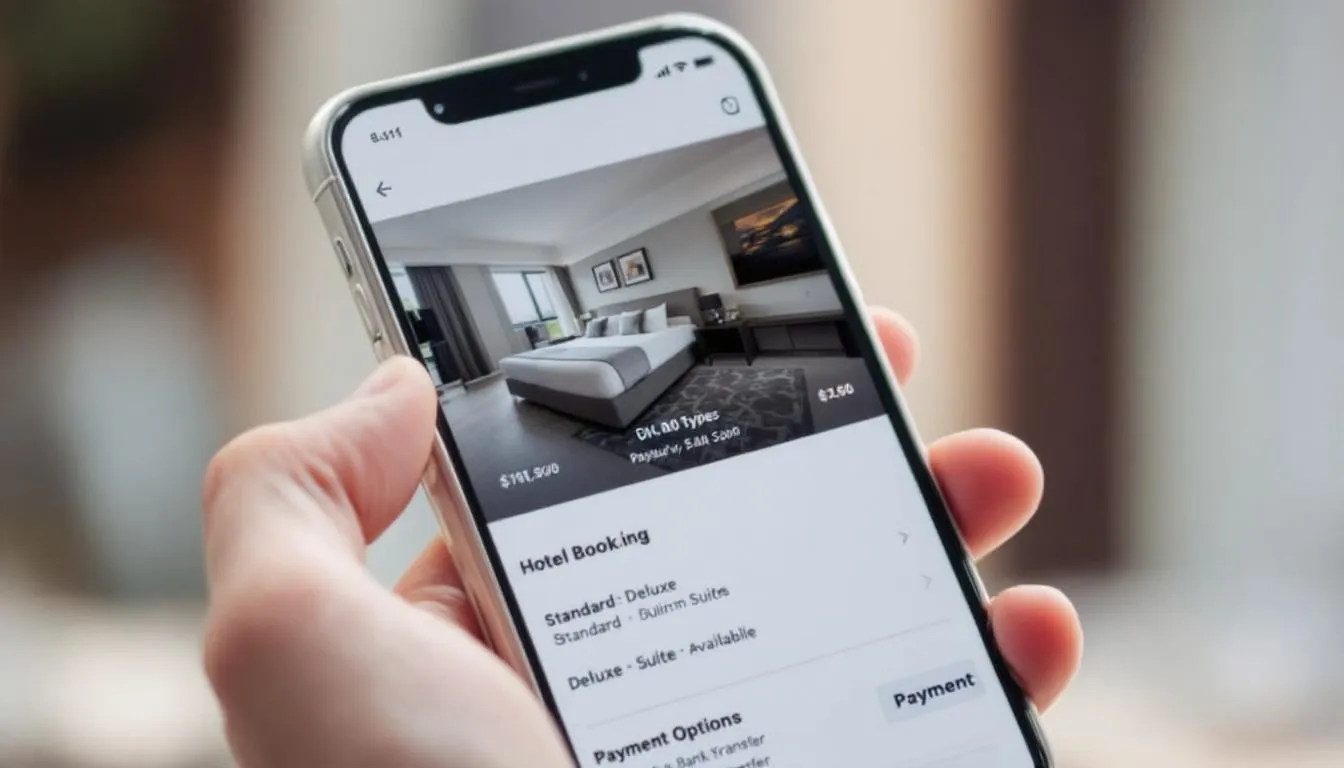
Today’s market offers a variety of hotel reservation systems, each tailored to different needs and property sizes. Knowing the differences helps you pick the right fit for your hotel.
Cloud-based systems are the go-to for most hotels now. These platforms live online, letting you manage bookings from any device with internet access. They require less IT maintenance and give you the freedom to work from anywhere.
On-premise systems are the classic choice, installed locally on your hotel’s servers. They offer more control but come with higher upkeep and need IT know-how. These tend to suit larger hotels with dedicated tech teams.
Central reservation systems (CRS) are designed for big hotel groups managing multiple properties. They provide advanced tools for revenue management and distribution, allowing you to handle rates, inventory, and guest data across your entire portfolio. Plus, they offer powerful analytics and automated pricing strategies.
Small hotel systems cater to independent hotels, B&Bs, and boutique properties. These solutions focus on the essentials, offering cost-effective, easy-to-use tools without the complexity of enterprise systems.
Hotel reservation systems bring big improvements to how your hotel runs day-to-day. Offering 24/7 booking availability means guests can reserve rooms anytime, from anywhere in the world, crossing time zones effortlessly.
Automation takes over many manual tasks—updating availability, sending confirmation emails, and managing inventory across channels—freeing your staff to focus on what matters most. This not only cuts labor costs but also boosts accuracy and guest satisfaction.
Real-time updates prevent overbooking by syncing room availability instantly across all platforms. Hotels using these systems often see up to a 20% drop in overbooking incidents, saving money and keeping guests happy.
With less admin work to handle, your team can spend more time enhancing the guest experience, upselling services, and building relationships instead of juggling bookings.
A well-run online reservation system is a powerful revenue tool. Driving more direct bookings through your hotel’s website means more commission-free reservations, keeping more money in your pocket instead of paying OTAs their 15-25% fees.
Dynamic pricing lets you tweak rates in real time based on demand, seasonality, and market trends. Many systems integrate with revenue management software to automate these adjustments, helping you maximize income during busy periods and stay competitive when it’s slower.
Upselling becomes part of the booking flow, with automatic prompts for room upgrades, packages, and extras that increase the average booking value while delighting guests with relevant offers.
Collecting guest data during booking helps you run targeted marketing campaigns, loyalty programs, and personalized communications that encourage repeat visits and build long-term value.
Today’s travelers expect a smooth, fast booking process—and hotel reservation systems deliver just that. Guests get instant confirmation, secure payment handling, and clear booking details right away.
Mobile-friendly designs mean your booking engine works beautifully on phones and tablets, capturing the growing number of guests who book on the go.
Special request options let guests share their preferences while booking, so you can tailor their stay from the start—whether it’s a room with a view, dietary needs, or celebration surprises.
Automated pre-arrival emails engage guests early, offering upsells, check-in info, and personalized messages that build excitement and make arrival hassle-free.
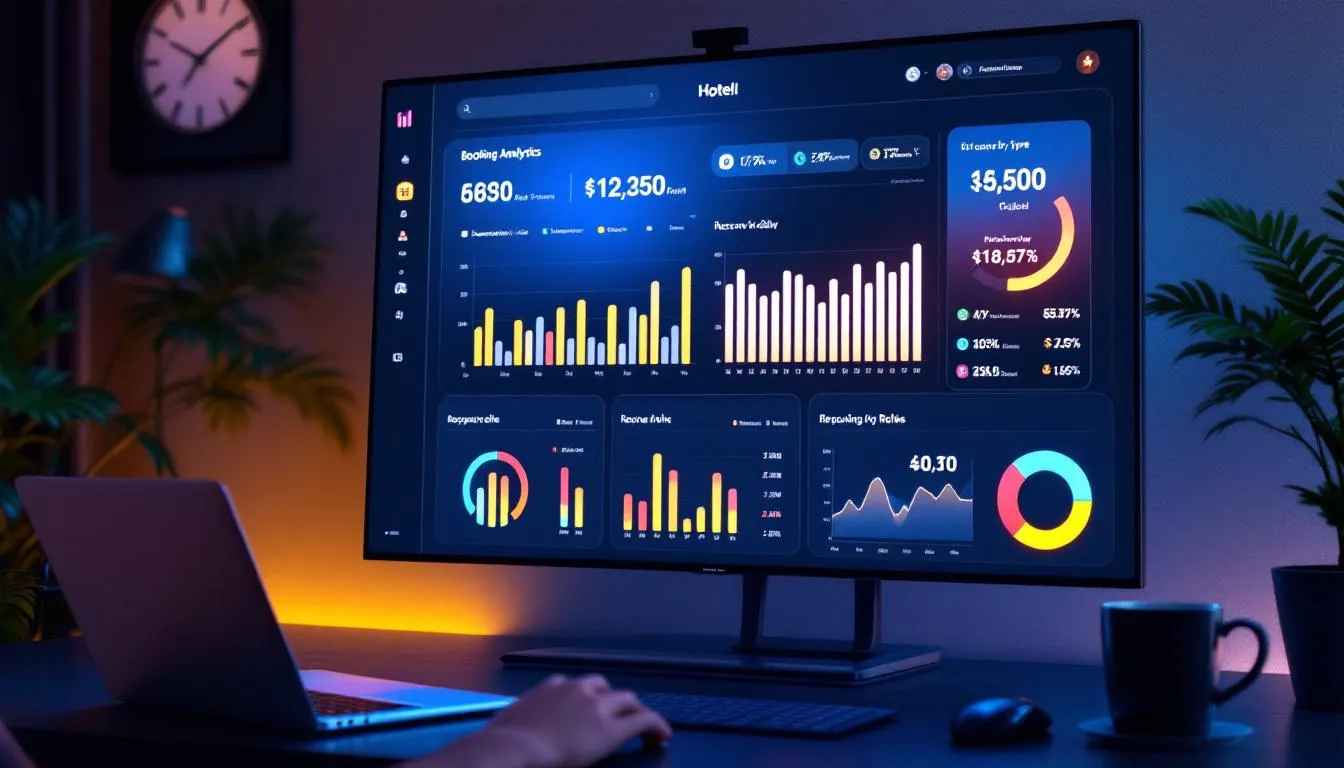
When you’re shopping for a hotel booking system, keep an eye out for these must-have features:
Real-time inventory management is the backbone, ensuring live room availability updates across all booking channels to prevent double bookings and keep guests happy, especially during busy seasons.
Secure payment processing protects your hotel and guests with PCI-compliant gateways supporting multiple currencies and payment methods, from credit cards to digital wallets.
Channel management integration broadens your reach by connecting your inventory to OTAs, GDS, metasearch engines, and direct booking channels—all while maintaining rate consistency.
Mobile compatibility is no longer optional. Your system should work flawlessly on all devices, letting guests book easily and staff manage reservations from anywhere.
Reporting and analytics provide the insights you need to make smart decisions—tracking booking trends, revenue, and marketing success.
Guest management tools help you personalize service by tracking booking history, preferences, loyalty programs, and communications, building stronger guest relationships.
Prostay is a modern hotel reservation system built for the evolving needs of accommodation providers. It integrates smoothly with PMS, channel managers, and booking engines to create a unified reservation ecosystem. Prostay helps manage room inventory, optimize rates, and streamline daily operations for hotels big and small.
With its intuitive interface, Prostay makes booking easy for guests and staff alike. It supports automated payments and real-time updates across all booking channels, cutting down on double bookings and keeping availability accurate. Its advanced revenue management tools help maximize room revenue with smart pricing.
Prostay’s cloud-based design and mobile-friendly features let hotel operators manage reservations from anywhere. Its detailed reporting tools reveal booking patterns and guest behaviors, helping hoteliers make informed choices.
Designed to scale, Prostay suits small accommodations and large hotel groups alike, with features like group bookings and personalized guest management enhancing the guest experience.
SiteMinder stands out as a market leader, offering advanced pricing tools, inventory optimization, and market intelligence for hotels of every size. Their platform connects hotels to the wider digital marketplace while providing top-notch revenue management.
Amadeus delivers enterprise-grade solutions that cover global distribution, revenue management, and booking operations for hotel chains, integrating deeply with travel industry partners.
SHR Windsurfer CRS remains popular with hotel groups, combining revenue management software, CRM, and call center services for full-scale reservation management.
For smaller properties, specialized solutions are available to meet budget and operational needs.
Little Hotelier is perfect for small hotels, B&Bs, and boutique accommodations, offering straightforward reservation management with a user-friendly platform.
Mirai focuses on boosting direct bookings with seamless branded booking experiences and dynamic pricing.
IWB Booking Engine provides affordable, customizable options for hotels, hostels, and B&Bs looking to increase direct reservations without heavy tech investments.
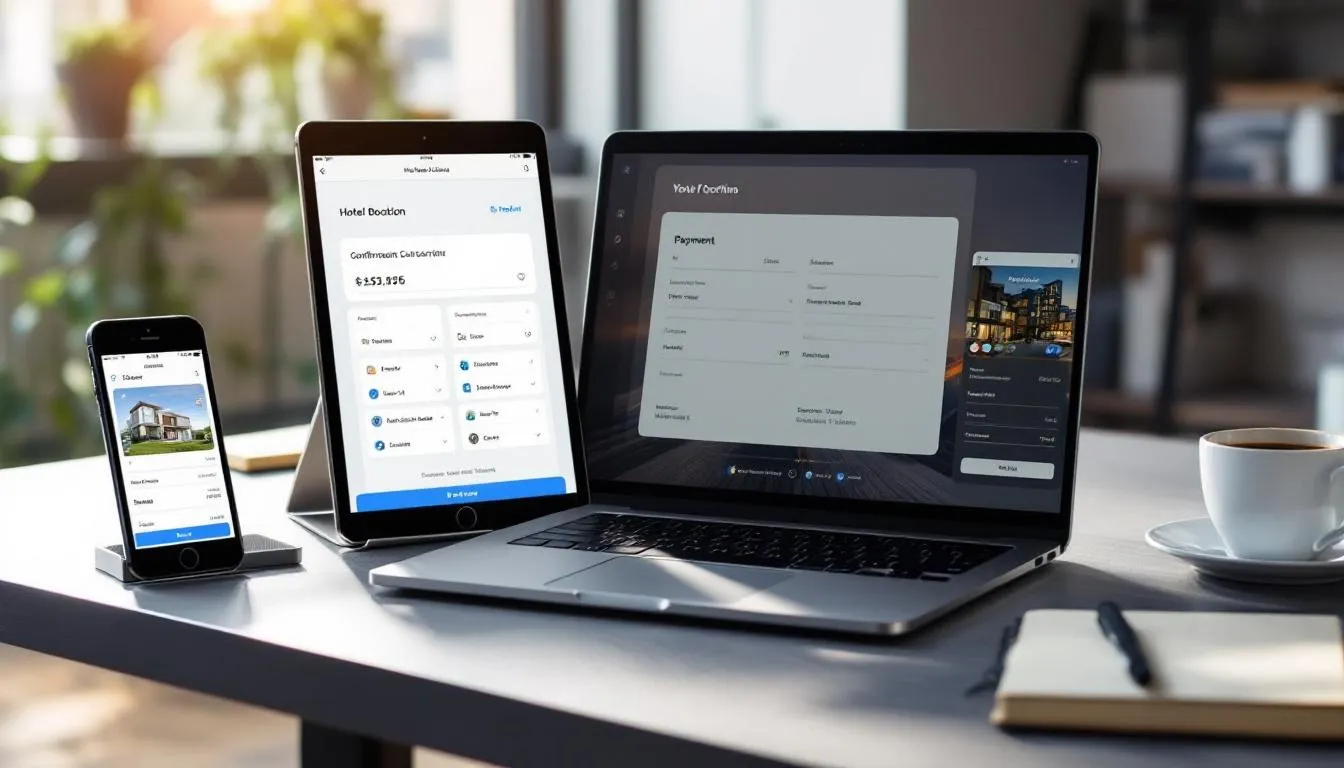
Choosing and setting up the right hotel reservation system takes planning and careful evaluation. Start by assessing your property size, booking volume, current tech stack, and specific needs.
Integration capabilities are crucial—your new system must work smoothly with your existing PMS, accounting software, and other hotel tools to keep operations running without a hitch.
Trial periods let you test the system’s features and usability in your real-world environment. Many vendors offer 14-30 day free trials so you can see if the software fits your workflow and team.
Implementation timelines vary widely—from 24 hours for simple setups to several weeks for complex enterprise solutions. Plan for staff training, data migration, and testing to ensure a smooth transition.
Training and support matter a lot. Look for vendors with strong onboarding programs, clear documentation, and responsive customer service to help your team get comfortable and confident.
Scalability is key. Your system should grow with your business, handling more properties and bookings as you expand. Think about both current needs and future plans when choosing.
Even the best systems come with challenges. Knowing what to expect and how to tackle issues can smooth your journey.
Preventing double bookings means choosing systems with solid integration and real-time sync. Test thoroughly before going live to avoid surprises.
Technical integration problems can cause headaches. Pick providers with good API support and dedicated tech teams to help you connect all your systems.
Staff training can be a hurdle. Choose user-friendly platforms and invest in proper training to ease adoption and keep operations efficient.
Budget management means focusing on essential features first. Avoid paying for extras you don’t need initially—many systems let you add features later.
Data security is non-negotiable. Make sure your system meets PCI standards and protects guest information to keep trust intact.
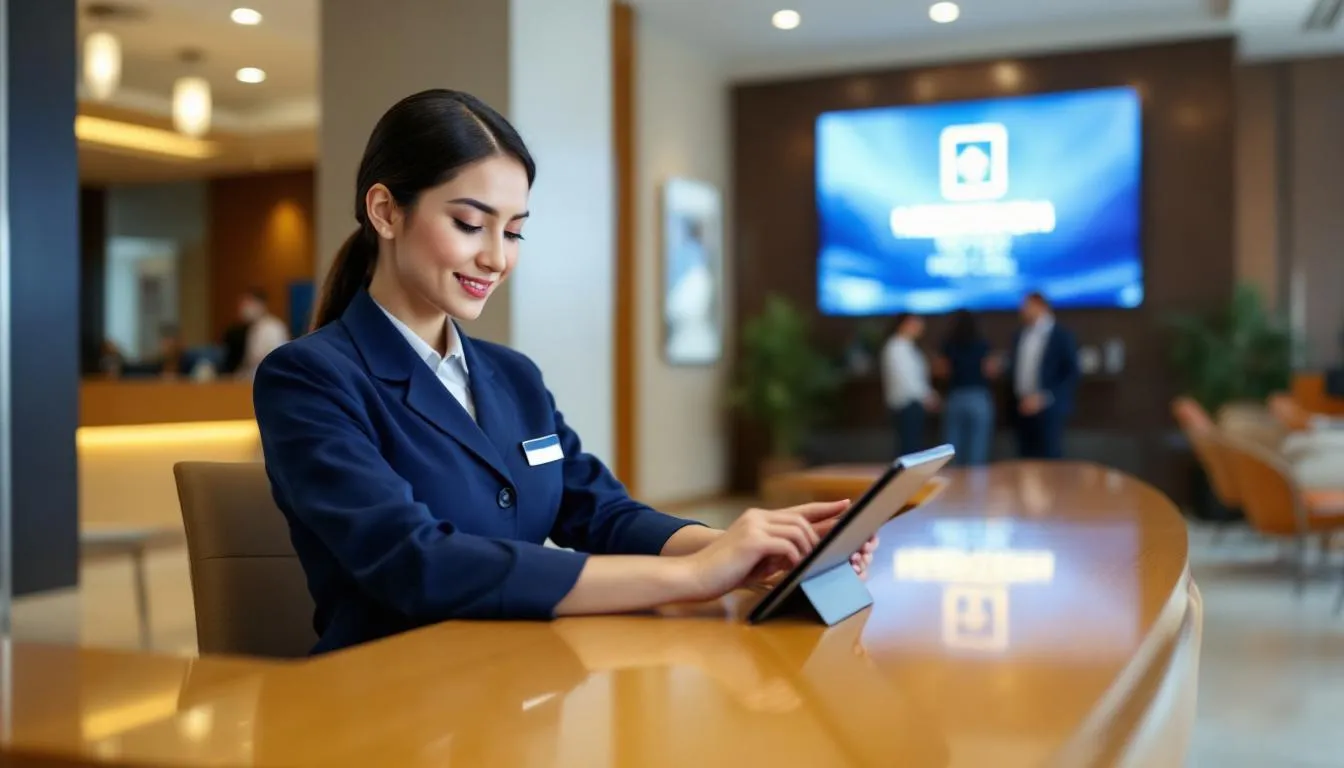
The world of hotel reservation systems is evolving fast, driven by changing guest expectations and new technologies. Success today depends on picking and using the right reservation platform tailored to your needs.
Modern hotel reservation systems have grown beyond simple booking tools to become comprehensive platforms that boost revenue, streamline operations, and enhance guest satisfaction. Investing in a quality system pays off with greater efficiency, less manual work, happier guests, and smarter revenue management.
When choosing your hotel reservation system, prioritize real-time synchronization, strong integration, mobile compatibility, and scalability. Keep both your immediate needs and long-term goals in mind to ensure your platform supports your hotel’s growth.
The hospitality industry’s digital transformation is just getting started. Hotels embracing advanced reservation systems will be best positioned to thrive in this fast-changing, technology-driven marketplace.